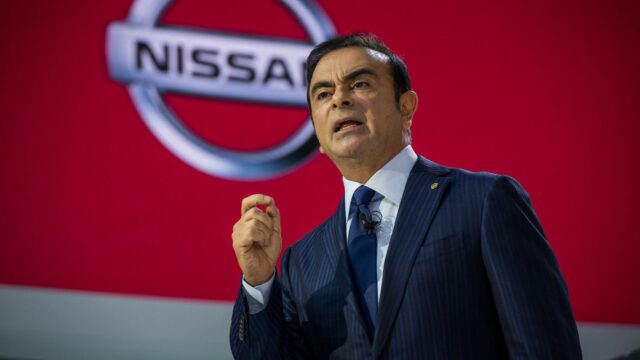The move signals a focus on the newly minted alliance with Mitsubishi





Carlos Ghosn steps down as Chief Executive Officer as of April 1, 2017, and will be replaced by Hiroto Saikawa, the current co-CEO and representative director. The move signals a need to focus on the new alliance with Mitsubishi.
The wizard of restructuring can finally say Mission Accomplished at Nissan. Mr. Ghosn, 62, is credited with one of the most spectacular revivals of a car brand. 18 years ago, he managed to turn around Nissan's fortunes and make it a profitable company. Now it's time to pass the torch, but the Brazilian will still remain in charge of overseeing Nissan's activities, as Chairman of the Board of Directors. He will seek a renewal of his mandate at the company's general shareholders meeting in June 2017.

This planned management evolution follows Mr. Ghosn's leadership of the recent expansion of the Renault-Nissan Alliance to include Mitsubishi Motors, which positions the Alliance among the top automotive groups in terms of scale, says a press release from Nissan.
As Nissan's Chairman, I will continue to supervise and guide the company, both independently and within the Renault-Nissan-Mitsubishi Alliance. This planned change will also allow me to devote more time and energy to managing the strategic and operational evolution and expansion of the Alliance and ensuring that all its members benefit from the competitive advantages that its scale will deliver. I am committed to supporting the Alliance as it evolves and expands, and will continue to serve each member of the Alliance wherever and whenever necessary."
Mr. Carlos Ghosn
Mr. Saikawa currently serves as Nissan's co-CEO and a representative director. Between April 2013 and October 2016, he was Nissan's Chief Competitive Officer. Mr. Saikawa joined Nissan in 1977, and since 1999 he has served in a variety of senior management positions, including Chairman of the Management Committees of the Americas and Europe, as well as the Executive Vice President of Purchasing.

In addition to his responsibilities at Nissan, Mr. Saikawa is the current Chairman of the Japan Automobile Manufacturers Association (JAMA). He previously served as a member of the board of directors of Renault between 2006 and 2016.
An ever-expanding alliance, but not without problems
The Renault-Nissan Alliance delivered significant growth in 2016, with global sales of 9.96 million vehicles. The car group also reinforced its leadership in zero-emission vehicles with cumulative sales of nearly 425,000 electric vehicles since the introduction of the Nissan LEAF in 2010, followed by the Renault ZOE. Mitsubishi Motors joined the Alliance in 2016, with Nissan's acquisition of a 34 percent equity stake in the company.

Groupe Renault's sales were up 13.3 percent to 3,182,625 vehicles in 2016 for the last year of the "Drive the Change" plan. This marked the fourth consecutive year of sales growth with a record year-on-year increase of 374,000 units.
Both Renault and Dacia brands had a record year in terms of sales volumes and Renault Samsung Motors volumes were up by 38.8 percent. Market share and sales volumes are up in all regions, with the Renault brand becoming No. 2 in Europe.
Nissan Motor Co. Ltd. sold a record 5,559,902 cars and trucks worldwide, up 2.5 percent. In the U.S.A. and China, the company achieved sales growth of 5.4 percent and 8.4 percent respectively, setting new records in both markets. Infiniti sold over 230,000 vehicles in 2016, a 7 percent increase from the previous year. In December alone, Infiniti sold 27,200 vehicles, an 18 percent increase versus the prior year.

Mitsubishi Motors sold 934,013 cars worldwide, down 13 percent. Sales grew in the United States and Australia but were offset by lower sales in Brazil, Russia, and the Middle East. Japan sales were also affected by lower consumer confidence following the fuel consumption issue. This is the part of the alliance that Mr. Ghosn will most likely focus on in the next couple of years, as he will try to apply the same recipe that made Renault and Nissan profitable companies.
